
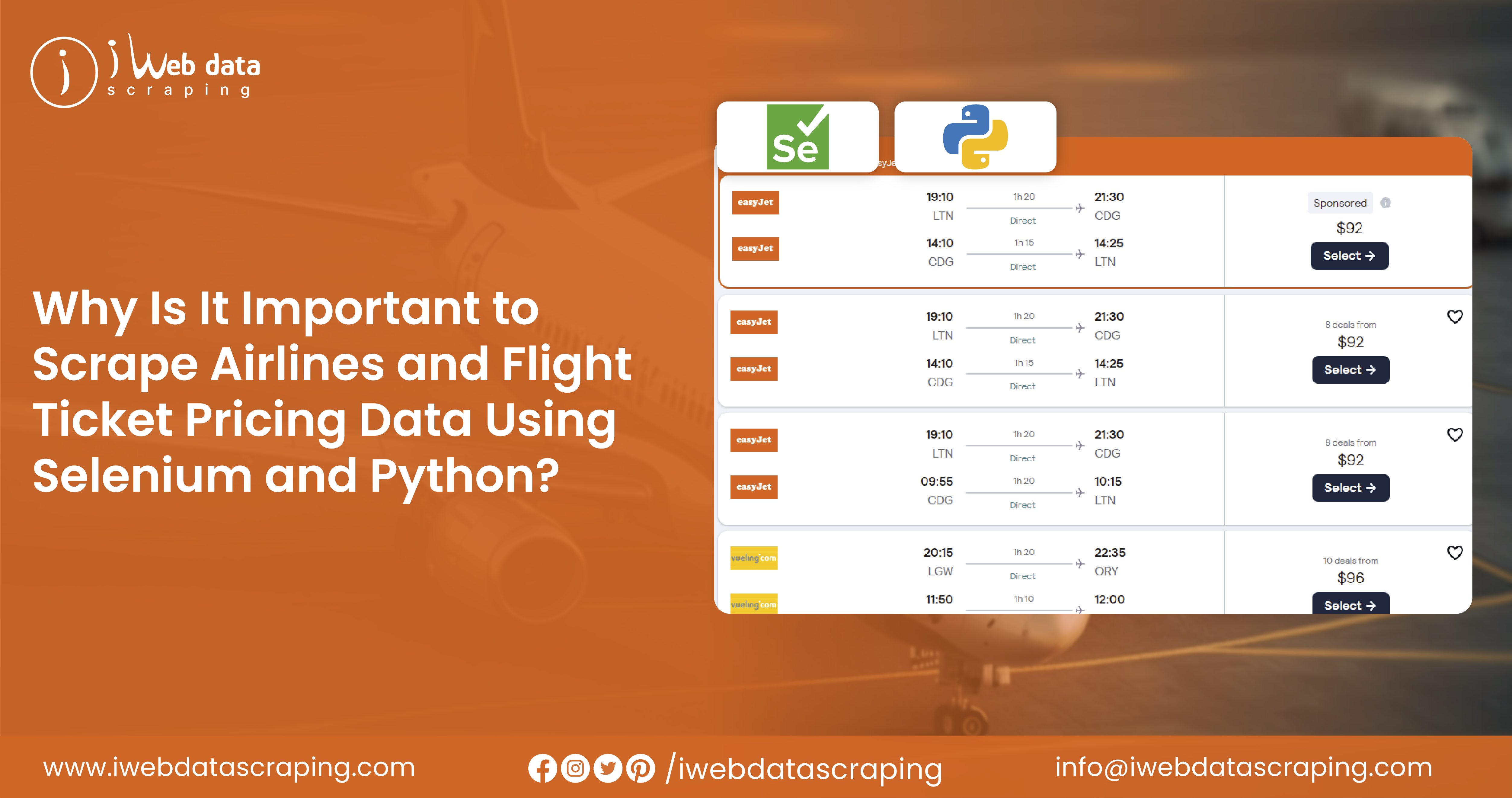
Data has emerged as a critical resource for businesses in the digital age, particularly in the travel and tourism sector. Airlines and travel agencies constantly analyze flight pricing data to maintain competitiveness, optimize revenue, and enhance customer experiences. This article will delve into how to scrape airline and flight ticket pricing data using Selenium and Python, emphasizing the methodology, practical examples, ethical considerations, and potential applications of the collected data. Businesses can gain valuable insights into market trends, customer preferences, and pricing strategies by employing techniques such as airline ticket pricing data scraping with Selenium and Python. Understanding these insights not only aids in decision-making but also fosters innovation in product offerings and marketing strategies, ensuring businesses remain agile in an ever-evolving landscape. This guide will equip you with the knowledge to navigate web scraping complexities effectively.
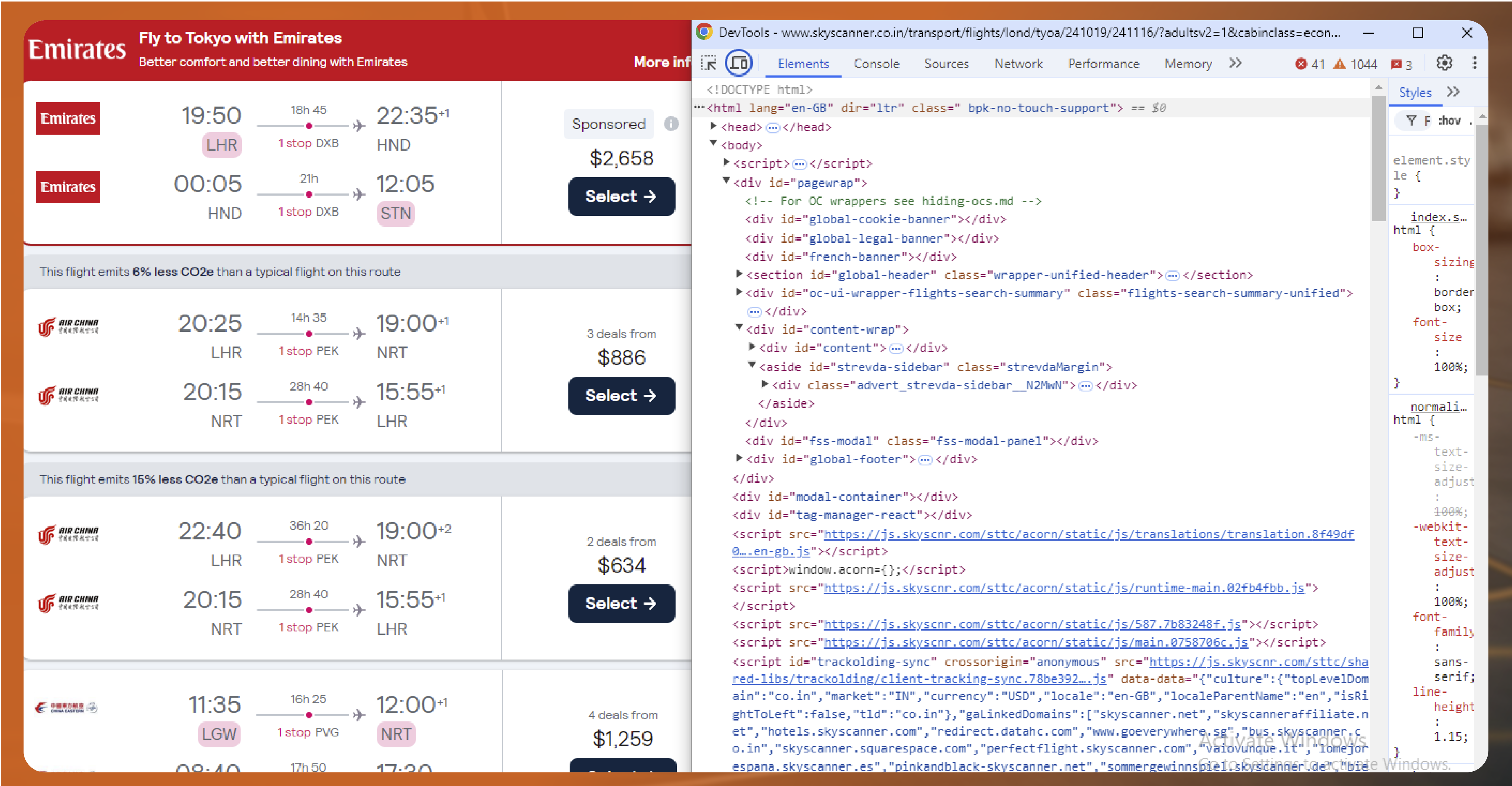
Scraping airline and flight ticket pricing data offers invaluable insights for travel industry businesses. By collecting real-time pricing information, companies can analyze market trends, optimize pricing strategies, and enhance customer experiences. This data-driven approach enables travel agencies and airlines to remain competitive, adapt to changing market conditions, and make informed decisions that drive revenue and growth.
1. Market Analysis
Understanding pricing trends across various airlines is essential for identifying effective competitive pricing strategies. By scraping flight data, businesses can gather real-time information about ticket prices, fare fluctuations, and promotional offers. This comprehensive market analysis enables travel agencies and airlines to benchmark their prices against competitors, ensuring they remain competitive and can adjust their offerings based on market conditions. Companies can automate this process using Airline data extraction services and gain insights that inform strategic pricing decisions.
2. Dynamic Pricing
Airlines frequently employ dynamic pricing models that adjust fares based on demand, time of booking, and other factors. Regularly scraping flight pricing data allows businesses to track these changes and adapt their strategies accordingly. Extract flight pricing data using Python and Selenium to monitor real-time fare changes, enabling them to optimize pricing strategies and provide customers with the best possible deals. This ability to respond quickly to market fluctuations can significantly enhance a company's competitive edge in the travel industry.
3. Customer Insights
Analyzing flight pricing data provides valuable insights into customer behavior and preferences. By examining patterns in ticket purchases, travel dates, and fare sensitivity, businesses can better understand what influences customer decisions. This information can guide marketing strategies, helping to tailor promotions and offers that resonate with target audiences. Additionally, flight data scraping services enable companies to continuously gather customer insights, refining their strategies and improving customer satisfaction. Leveraging these insights through travel data collection allows businesses to enhance their offerings and align them with customer expectations.
4. Historical Data
Collecting historical flight pricing data is crucial for forecasting and demand prediction. By analyzing past pricing trends, businesses can identify seasonal fluctuations and patterns influencing ticket sales. This historical perspective aids in making informed predictions about future pricing strategies and demand levels. Airlines and travel agencies can proactively manage pricing and inventory by integrating historical data into their decision-making processes, leading to optimized revenue. Utilizing web scraping airline and flight ticket pricing data ensures that the data collected is accurate and comprehensive, allowing for better forecasting and strategic planning.

Before diving into the coding aspect, it's crucial to understand the tools needed for web scraping. For this project, we will use:
1. Python: A powerful programming language that is widely used for web scraping.
2. Selenium: is a popular web automation tool allowing you to interact with web pages programmatically.
3. BeautifulSoup: A Python library used to parse HTML and XML documents, which can be used with Selenium.
4. Pandas: A data manipulation and analysis library will help store and process scraped data.
5. ChromeDriver: A web driver for Chrome that enables Selenium to control the Chrome browser.
Before we start scraping, let's set up our environment.
Step 1: Install Required Libraries
Make sure you have Python installed. You can install the necessary libraries using pip:
pip install selenium beautifulsoup4 pandasStep 2: Download ChromeDriver
1. Download the ChromeDriver from here based on your Chrome version.
2. Place the downloaded chromedriver.exe in a directory accessible in your system's PATH or the same directory as your script.
Step 1: Import Necessary Libraries
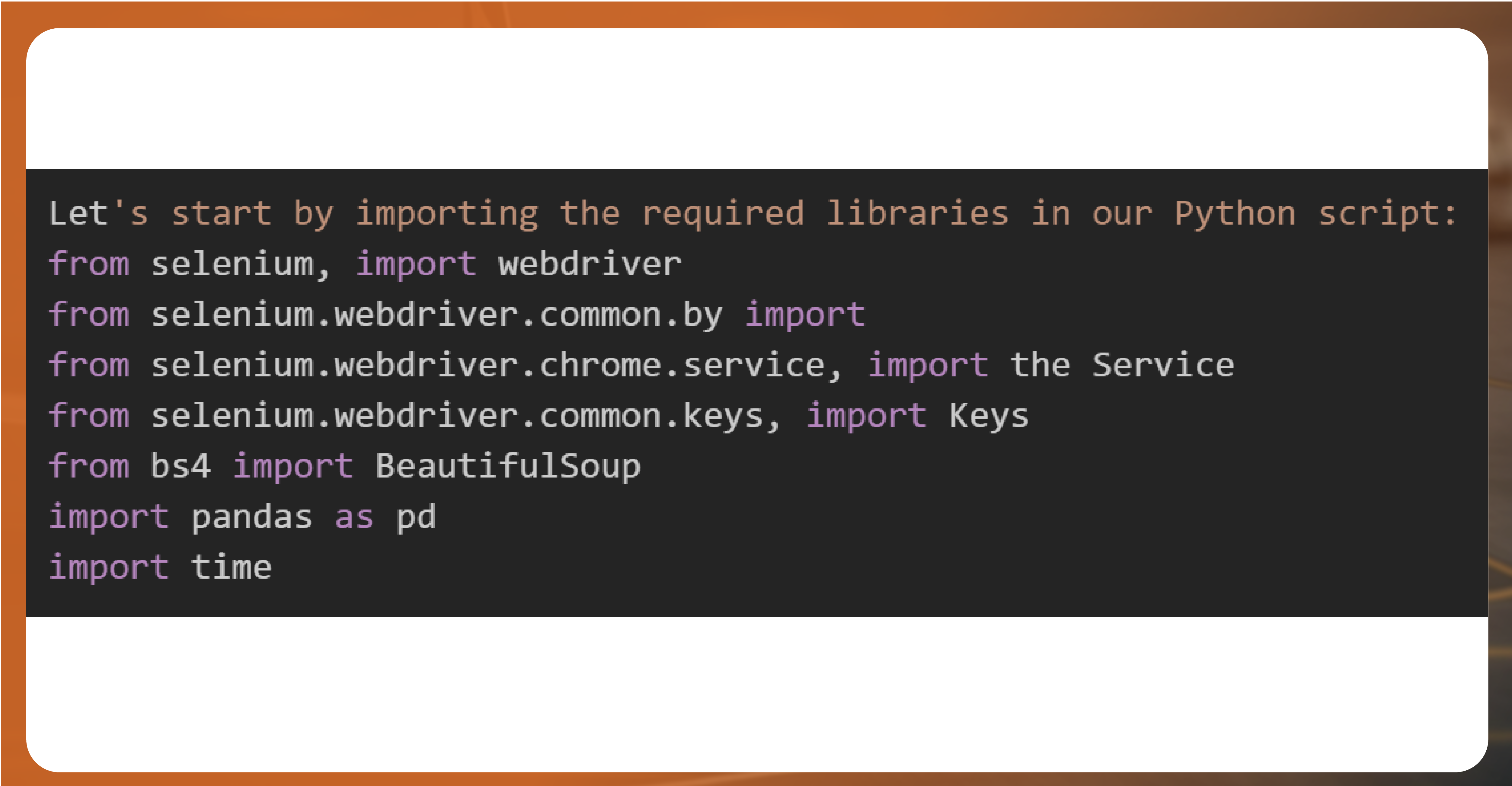
Step 2: Initialize WebDriver
Next, we'll set up the Selenium WebDriver to open the browser and navigate to a flight booking website like Kayak, Skyscanner, or Google Flights.
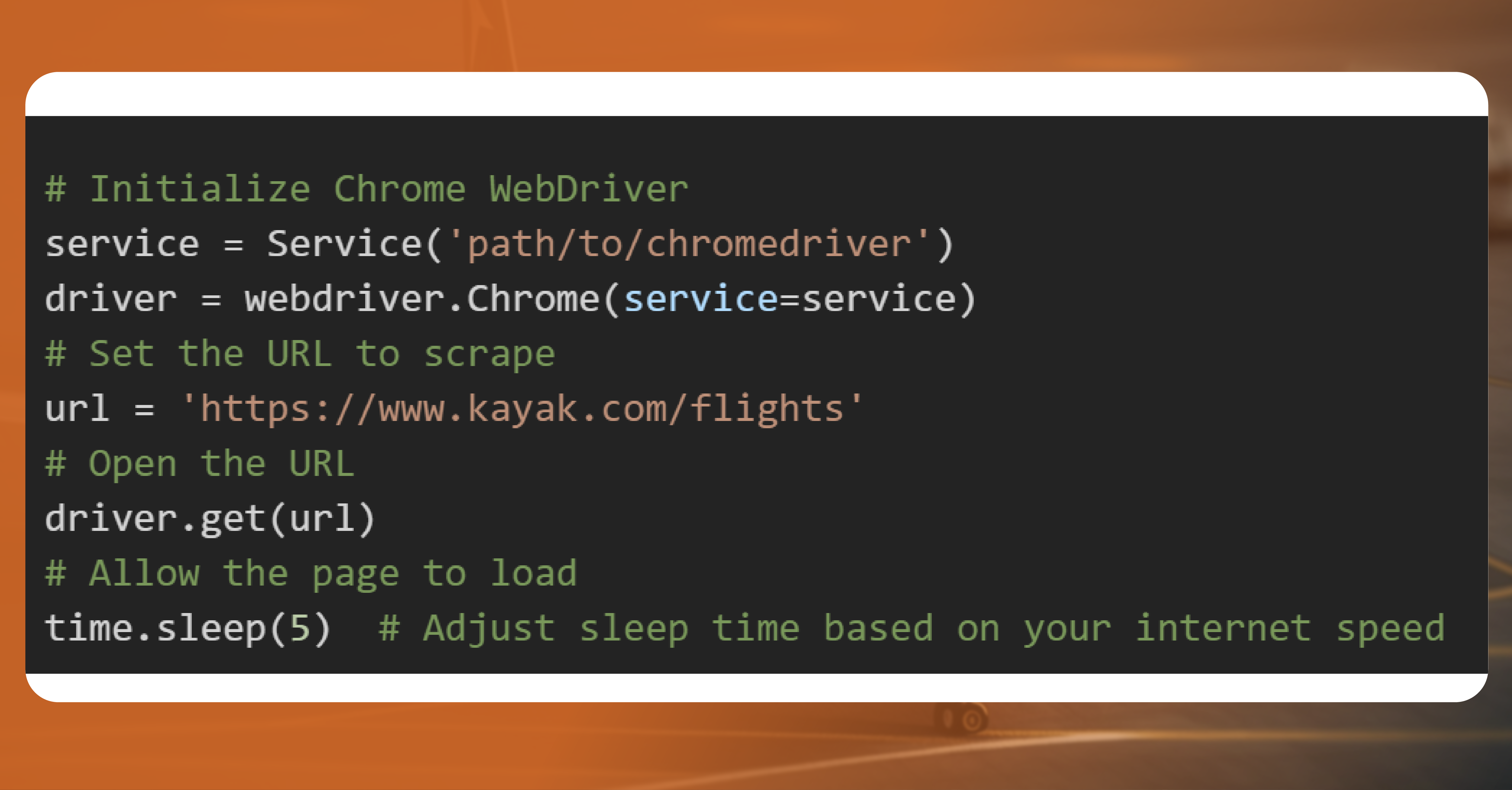
Step 3: Search for Flights
To scrape flight ticket pricing data, we must input our search criteria (origin, destination, and dates) and trigger the search. Here's how we can do that:
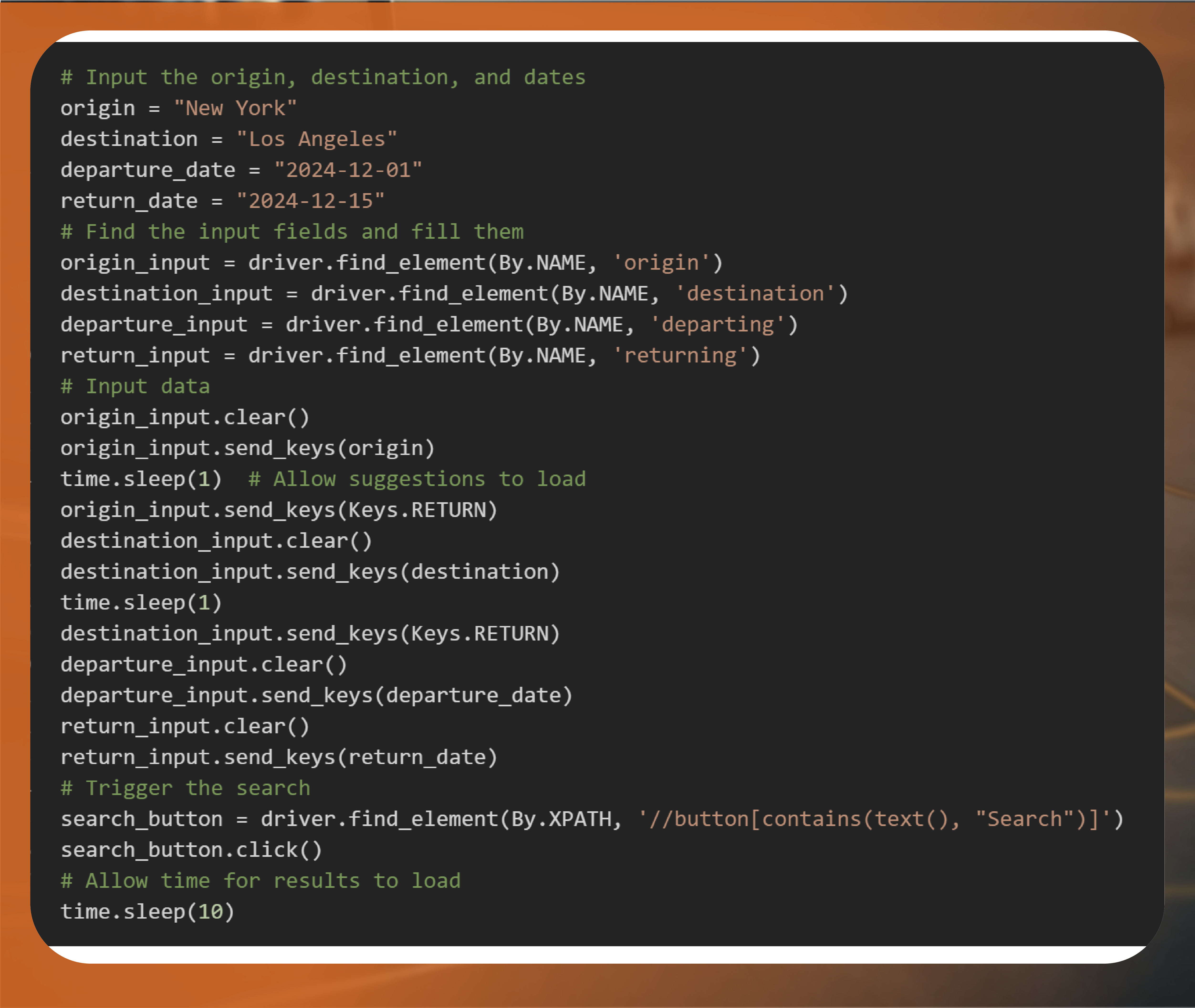
Step 4: Scrape Flight Data
Once the search results are displayed, we can extract the relevant data such as flight details, prices, and airlines.
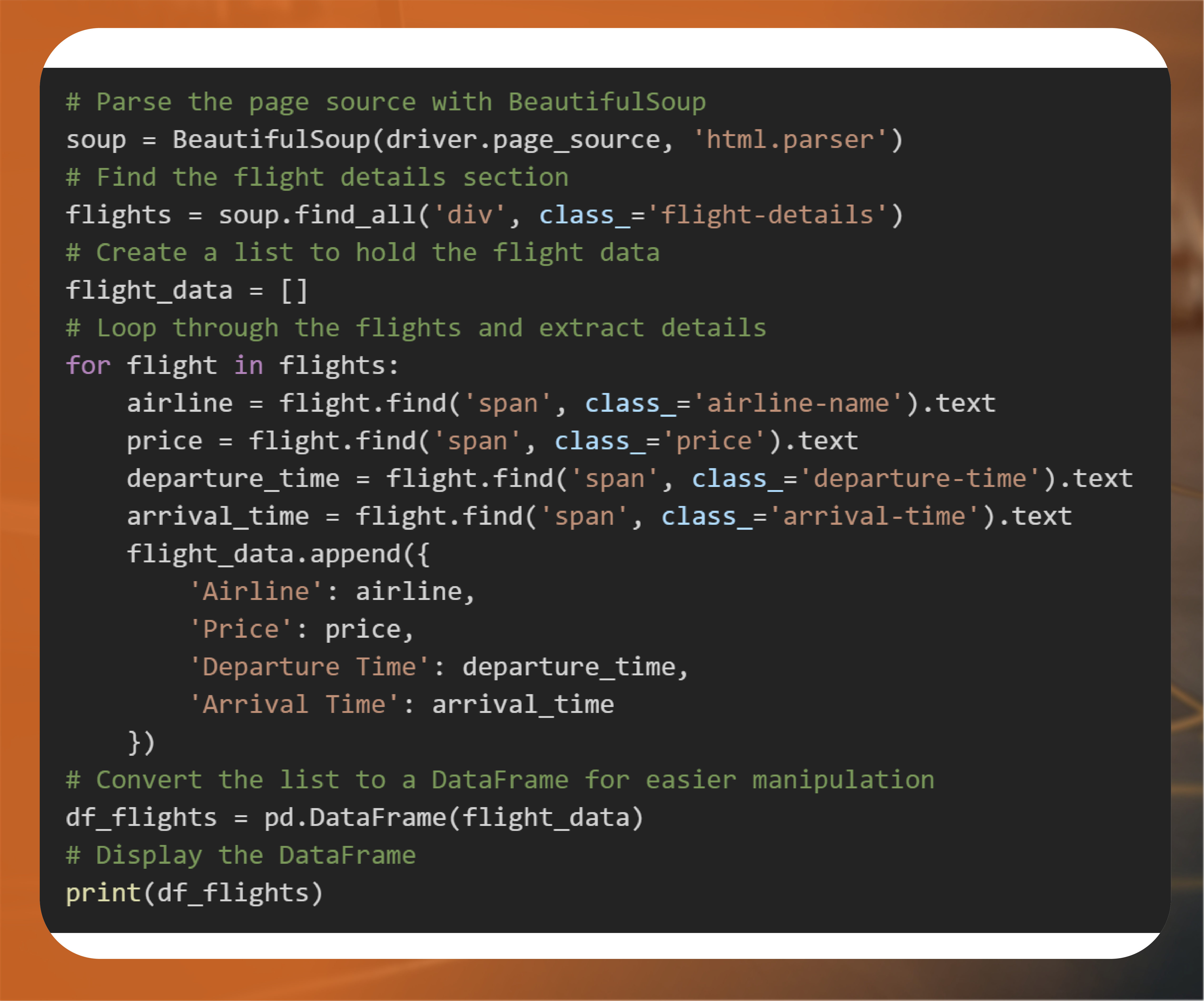
Step 5: Exporting Data
Once we have collected the flight data, we can export it to a CSV file for further analysis.

Step 6: Closing the Browser
After scraping, closing the browser to free up resources is essential.
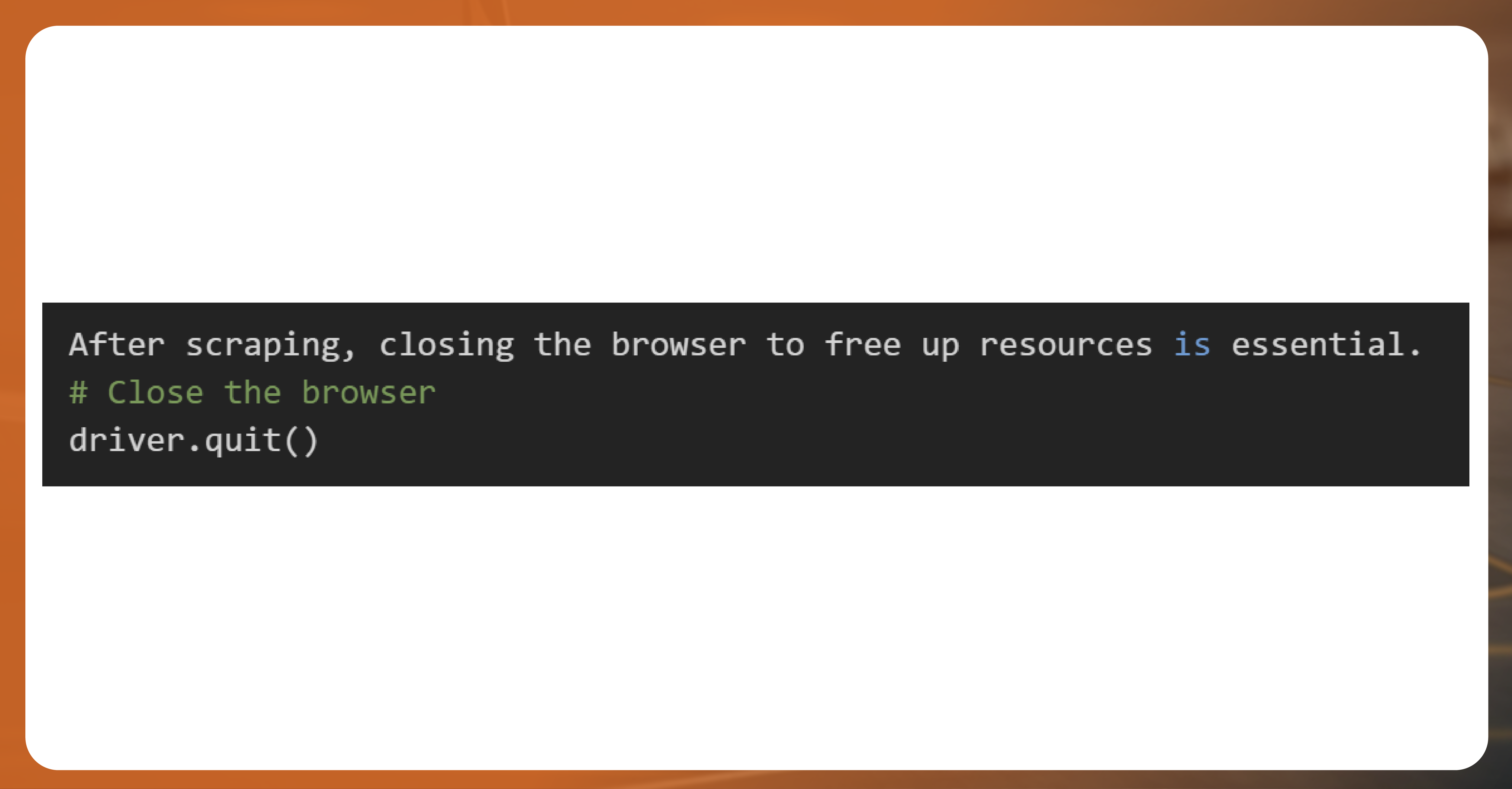

When scraping data from websites, it's essential to keep the following ethical considerations in mind:
1. Adhere to Terms of Service: Always review the website's terms of service you are scraping. Some sites may prohibit automated data collection.
2. Respect User Privacy: Avoid scraping personal information and ensure compliance with privacy laws such as GDPR.
3. Rate Limiting: Implement rate limiting to avoid overwhelming the server with requests, which could lead to being blocked.
4. Use Data Responsibly: Ensure that the data collected is used for legitimate purposes and does not mislead stakeholders.

1. Dynamic Content: Many travel websites use JavaScript to load content dynamically, complicating scraping efforts. Selenium helps with this, but there might still be challenges.
2. Anti-Scraping Measures: Some websites implement anti-scraping techniques such as CAPTCHAs, which can hinder automated data collection.
3. Data Accuracy: Scraped data may only sometimes be accurate or up-to-date. Always verify the information and consider using APIs when available.
4. Legal Risks: Scraping data without permission can lead to legal issues. It's essential to be aware of the legal implications in your jurisdiction.
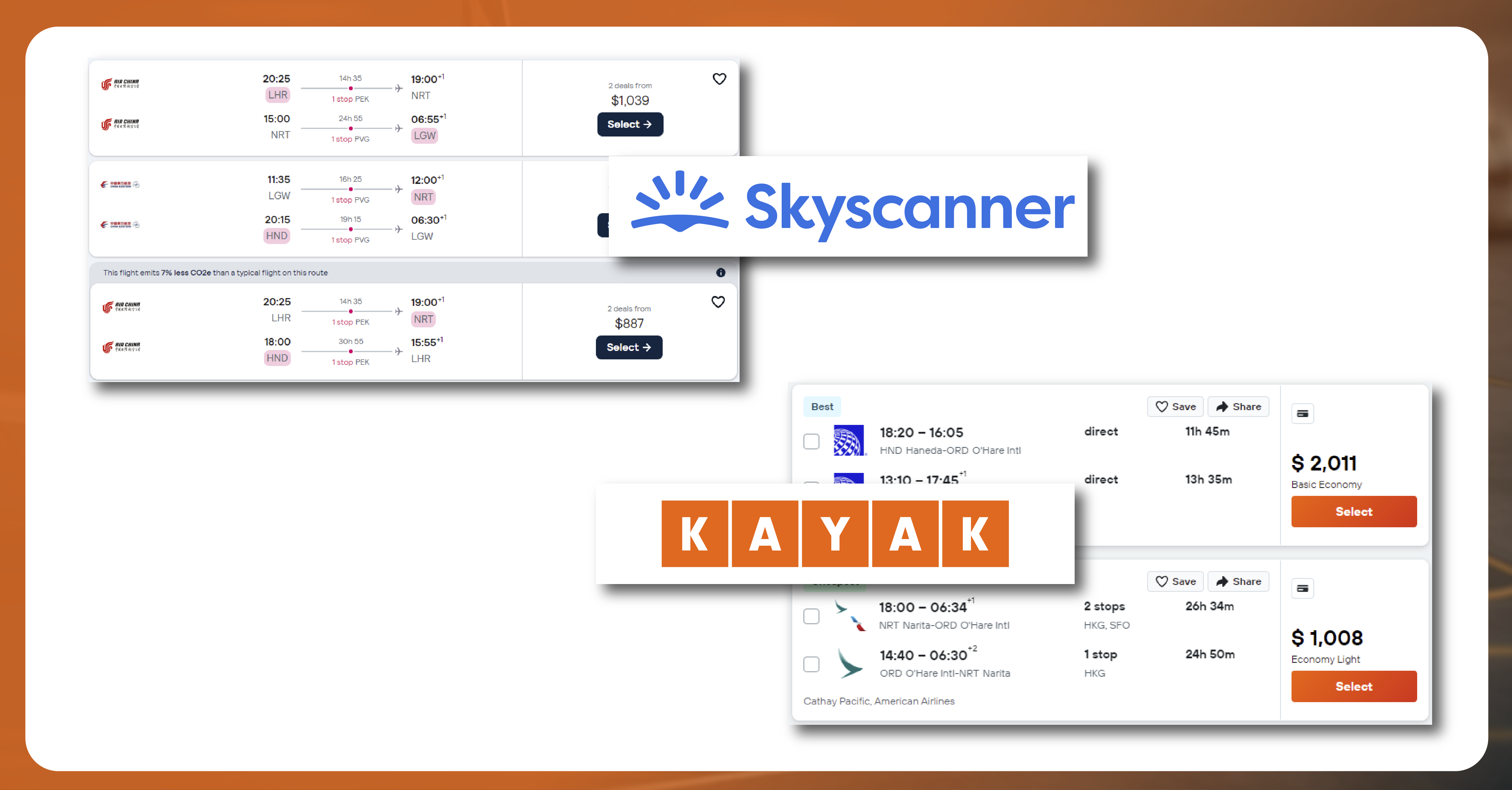
1. Price Comparison: Travel agencies can use scraped flight pricing data to compare prices across different airlines and offer competitive rates to customers.
2. Trend Analysis: Airlines can analyze historical flight pricing data to identify trends and adjust pricing strategies accordingly.
3. Customer Insights: Understanding customer preferences and behaviors can help airlines and travel agencies tailor their offerings and marketing strategies.
4. Revenue Optimization: By continuously monitoring pricing data, airlines can optimize revenue management strategies and maximize profits.
Scraping airlines and flight ticket pricing data with Selenium and Python is a powerful way to gain insights into the travel market. By understanding the methodologies, ethical considerations, and potential applications of the scraped data, businesses can leverage this information to enhance their competitive edge. Whether you are a travel agency, airline, or data analyst, flight data scraping API can provide invaluable insights to help you make informed decisions in the dynamic world of travel.
With continuous advancements in web technologies and data analysis techniques, the ability to scrape and analyze data effectively will remain a crucial skill in the ever-evolving landscape of travel and tourism. Tools such as a flight price data scraper can streamline this process, making gathering and analyzing large datasets easier. Happy scraping!
Experience top-notch web scraping service and mobile app scraping solutions with iWeb Data Scraping. Our skilled team excels in extracting various data sets, including retail store locations and beyond. Connect with us today to learn how our customized services can address your unique project needs, delivering the highest efficiency and dependability for all your data requirements.